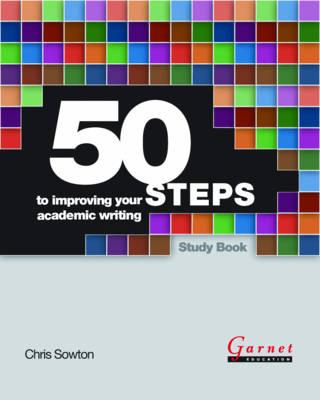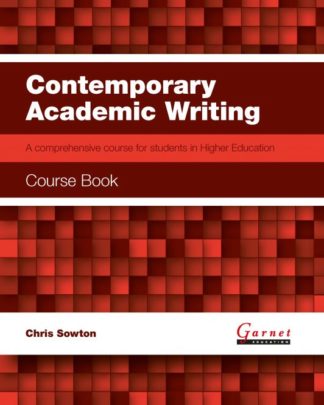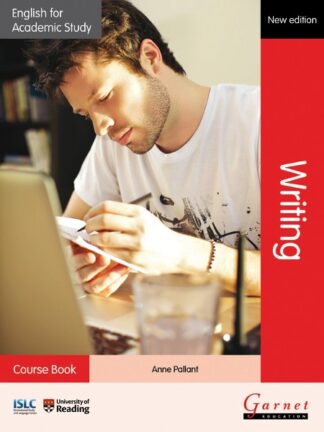Publisher: Garnet Education
Upper Intermediate to Native Speaker
CEF: B2+
IELTS: 5.0+
50 Steps to Improving Your Academic Writing addresses the challenges facing every student beginning a program of academic study. This comprehensive guide gives you everything you need to write well-constructed academic essays. It is packed full of information that is critical to attaining better marks, including:
-
- how to apply critical thinking skills
-
- how to strengthen your arguments
-
- how to include paper referencing
-
- how to avoid plagiarism
50 Steps has been developed to mirror best practice in academic essay writing: researching, planning, writing and then proofreading an essay. Multiple entry points allow you either to work through the book in chronological order or to dip in and out depending on your needs.
Key Features
-
- A step-by-step guide to academic essay writing
-
- Appendices include extra information, extension activities and related weblinks
-
- Includes answer keys and glossaries
-
- Can be used for self-study or in classrooms
CONTENTS
Introduction
A. Understanding Academic Convention
-
- How is writing different from speaking?
-
- How is academic writing different to other forms of writing?
-
- What is plagiarism?
-
- How can I use other people’s ideas in my own writing?
-
- How can I reference properly?
B. Researching your Essay
-
- How do I choose my source material?
-
- How should I use the Internet for research?
-
- What critical thinking skills do I need to develop?
-
- How can I read more efficiently?
-
- How can I take notes effectively?
C. Preparing to Write
-
- How does my mother tongue affect my writing?
-
- How can I manage my time effectively?
-
- How can I understand my title?
-
- How can I brainstorm ideas and develop an outline?
-
- What is a thesis statement and how do I write one?
D. Organizing your Text
-
- What different types of academic writing are there?
-
- How is text organized in academic writing?
-
- What are the characteristics of a good paragraph?
-
- What should be included in my introduction?
-
- What should be included in my conclusion?
E. Making your Writing more ‘Academic’
-
- How can I make my essays more ‘formal’?
-
- Should I use ‘I’ in my writing?
-
- When should I use cautious or tentative language?
-
- How can I make my writing more complex?
-
- How can I strengthen my argument?
F. Developing your Writing Style
-
- How can I write a good sentence?
-
- How can I make my writing more emphatic?
-
- How can I make my writing more coherent?
-
- How can I make my writing more cohesive?
-
- What kind of linking devices can I use in my academic writing?
G. Using Functional Language in your Writing
-
- What is the best way of reporting others’ words?
-
- How can Is
-
- How cause and effect?
-
- How should I define unfamiliar words and phrases?
-
- How can I compare and contrast different ideas?
-
- What language should I use to interpret tables and graphs?
H. Enriching your Vocabulary
-
- How can I stop repeating the same language?
-
- How can I stop using vague and unnecessary words?
-
- What are ‘collocations’ and
-
- How can I use them?
-
- What phrases are commonly used in academic writing?
-
- How can I use prepositions effectively?
I. Improving your Grammar
-
- What tenses should I use in academic writing?
-
- How can I use modal verbs correctly?
-
- How can I punctuate correctly?
-
- How can I use articles?
-
- How can I use adverbs effectively and accurately?
J. Finalising your Writing
-
- Why is proofreading important?
-
- What proofreading strategies can improve my final draft?
-
- What language/grammar mistakes are particularly common?
-
- How do I write a good abstract?
-
- What final checks do I need to make?
Answers
Glossary





